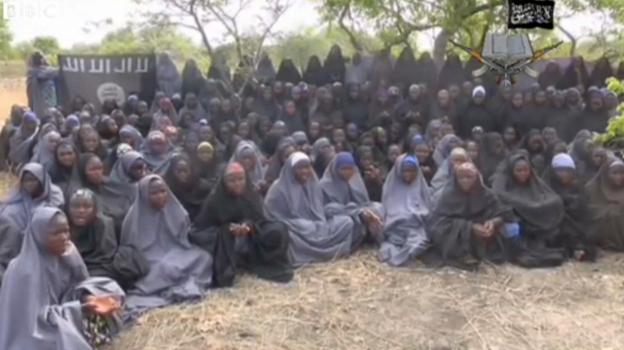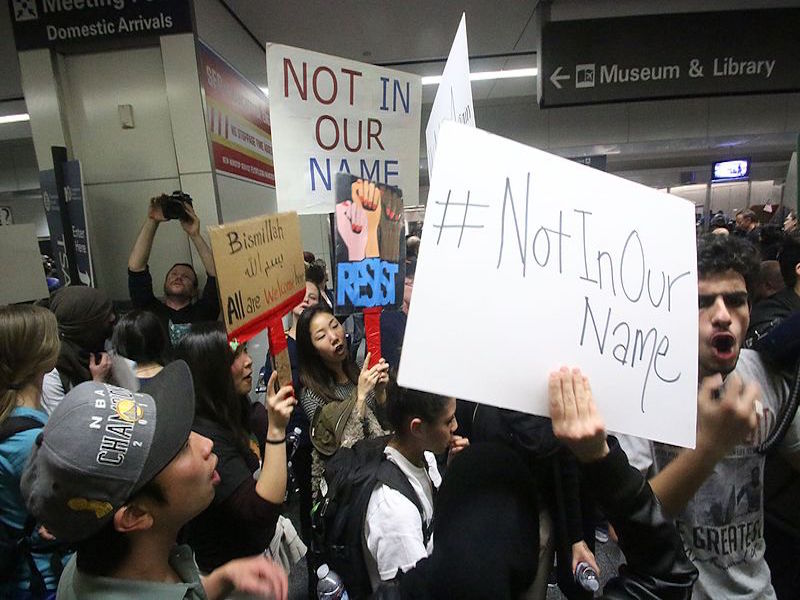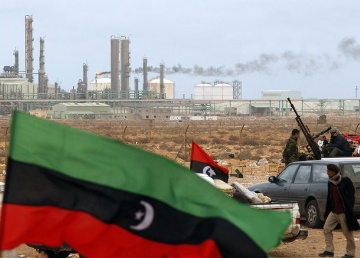 When the Islamic militant group Boko Haram abducted 276 girls from a village in Nigeria six months ago, the event sparked global outrage. Fuelling the anger was the fact that the girls had been writing exams at their boarding school when they were attacked. A number of the victims were able to escape after a few days, but 219 remain missing. The girls’ families and friends have spoken openly about their agony and have complained that, until recently, the only information they have received has been based on rumours and unfulfilled promises from politicians. A few weeks after the abduction, the Bring Back Our Girls campaign was founded in an attempt to raise global awareness about the crime and pressure the Nigerian government to secure the girl’s safe return.
When the Islamic militant group Boko Haram abducted 276 girls from a village in Nigeria six months ago, the event sparked global outrage. Fuelling the anger was the fact that the girls had been writing exams at their boarding school when they were attacked. A number of the victims were able to escape after a few days, but 219 remain missing. The girls’ families and friends have spoken openly about their agony and have complained that, until recently, the only information they have received has been based on rumours and unfulfilled promises from politicians. A few weeks after the abduction, the Bring Back Our Girls campaign was founded in an attempt to raise global awareness about the crime and pressure the Nigerian government to secure the girl’s safe return.
Boko Haram was established about ten years ago to promote a version of Islam that seeks to annihilate any Western political or social activity. The group’s official title is Jama’atu Ahlis Sunna Lidda’awati wal-Jihad, or “People Committed to the Propagation of the Prophet’s Teachings and Jihad”. The name Boko Haram loosely translated means “Western education is forbidden” in the Hausa language and it was coined by residents of Maiduguri, the city where the group has its headquarters. In addition to the kidnappings, the terrorist group is responsible for killing thousands of individuals throughout northeastern Nigeria, and has affected nearly three million people with its military operations.
International attention to the fate of the school girl hostages has resurfaced after reports of a ceasefire between the Nigerian government and Boko Haram. Nigerian presidential aide Hassan Tukur has said that Boko Haram has assured the government that it will release the girls and that he is “cautiously optimistic.” Although the details of the negotiation have not yet been disclosed, Boko Haram has been demanding the release of detained extremists in exchange for the children.
What is most suspicious about the ceasefire agreement is the claim by Boko Haram negotiators that “the schoolgirls and all other people in captivity are alive and well.” True, the girls may be alive, but it is hard to believe that they could be considered “well” by any standard. One need only look at the experience of one of the released girls, who made it home in September. She is said to have spent several nights screaming “They will kill me! They will kill me!”
Going forward, the families of the Nigerian girls and the international community will have to wait and see how successful the negotiations are. Additionally, the wider problem of Boko Haram, and terrorism in the region more generally, will need to be addressed sooner rather than later if we are to avoid any more tragedies like this one. Augusta Waldie




